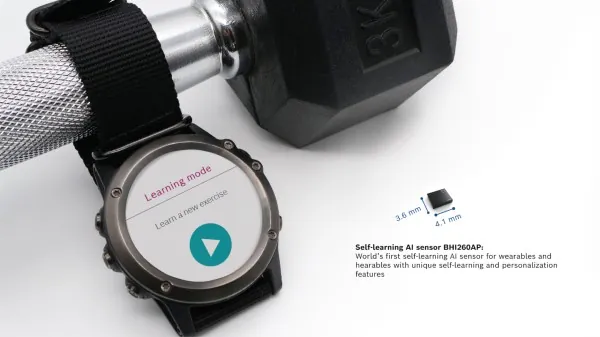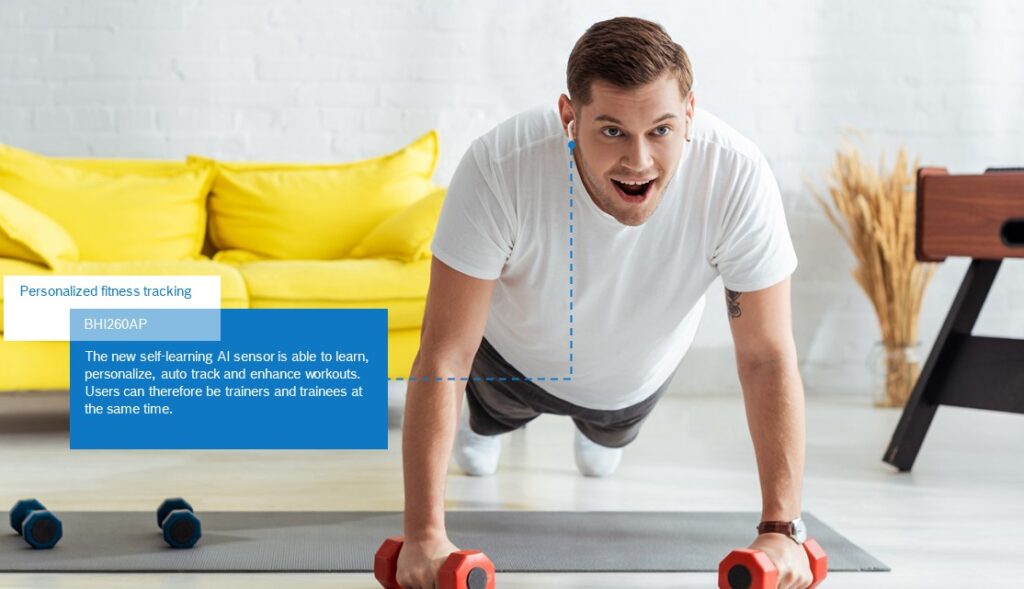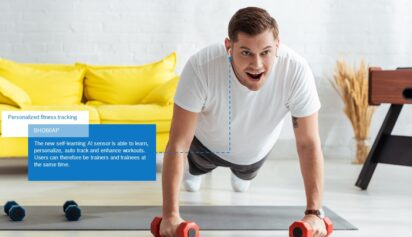Squats, crunches or kettlebell swings: if you are starting a fitness regime in 2021, there are many potential exercises to choose from.
However many fitness devices and smartwatches can only track a limited number of activities and do not recognise them reliably due to different performance styles, equipment, heights and energy levels of users.
A new entry to the market aims to change all that. Bosch Sensortec’s BHI260AP self-learning motion sensor adds artificial intelligence to portable devices.
It enables manufacturers of wearable and hearable devices to provide highly personalised fitness tracking through self-learning AI software in the sensor. It recognises and adapts to a wide variety of movements and is able to learn any new fitness activity that is based on repetitive, cyclical patterns.
“The self-learning AI sensor will change how users interact with their fitness devices from a mere one-way approach to an interactive way of training”, said Dr. Stefan Finkbeiner, CEO at Bosch Sensortec.
“This new sensor combines Bosch Sensortec’s long-term experience in smart motion sensors with its strong competence in innovative software development.”

The software is available with a standard set of more than 15 pre-learned fitness activities, which can then adapt to the user’s individual style, increasing the accuracy of calorie counting and activity analysis.
It also has a learning mode which offers users the option to add new fitness activities, enabling them to customise the device to their individual needs.
The auto track function allows users to automatically track fitness activities without any manual intervention and analyse their intensity with activity type and count over time – enabling both endurance and strength training.
Manufacturers can also add new fitness activities without having to modify the software or needing an original dataset. These new transferable exercises may be provided by coaches or star athletes, enabling benchmarking against the best and learning from experts, or simply from the users’ friends.
With the AI running on the sensor itself, hence on the edge, no connectivity to the cloud or even a smartphone is needed. This keeps the data private and means activities can be continuously tracked and analysed, without the need for an internet connection or tethering to a phone.
sport

